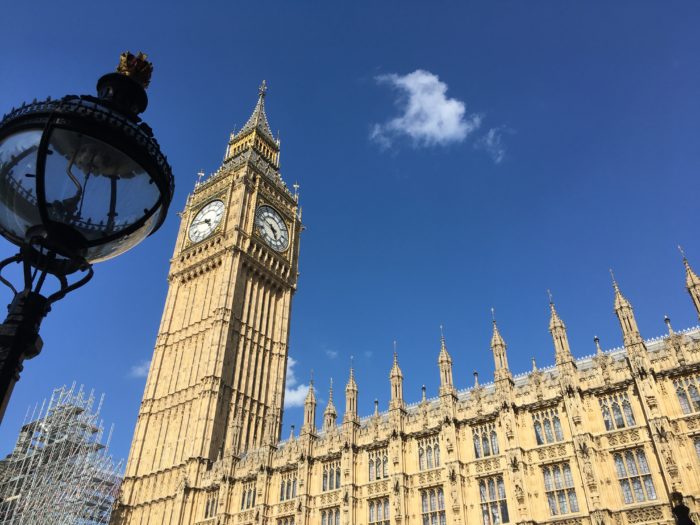Studying Parliament's online public engagement strategies and activities
Our latest blog post has been provided by Nicole Nisbett, a recent addition to the School of Politics and International Studies (POLIS) at the University of Leeds. Nicole’s PhD study, supervised by Cristina Leston-Bandeira and Viktoria Spaiser, focuses on the UK Parliament’s online engagement activities, their effectiveness, and how Parliament currently interprets the data gained from them. This work is highly pertinent to the Centre for Democratic Engagement; our research focus encompasses political engagement and new channels of participation.
My project will focus on the online public engagement strategies and activities within the UK Parliament. Understanding what is meant by public engagement and the dimensions involved is a vital first step.
Various reports released over the last 7 years from departments within Parliament have outlined the commitment they have put towards improving their public engagement strategies. These range from Select Committee inquiries to Private Members' Bills - with tools such as digital debates and the very popular e-petitions system.
Parliament, as with most institutions, produces a vast amount of data; be that Hansard reports, television broadcasting, or their social media account data. Summary statistics and descriptive analyses can be taken from this data to provide an overview, but this does not fully explain what is going on.
Coming from a background of Linguistics and Data Science and being new to the world of Politics and Parliament, my approach to the project will be interdisciplinary by default. The data produced is largely text based, meaning text analysis will be an important focus of this project. Not only applying the methods of analysis already established, but looking at new and emerging techniques.

Image courtesy of Cristina Leston-Bandeira
Emotional analysis (harvesting the underlying emotions encoded into text), as well as network analysis and topic models, will be crucial methods to use to really understand the value of the input the public is providing to Parliament.
- How effective are these methods of online public engagement?
- Do Parliament’s initiatives bring together citizens from different backgrounds who would otherwise not communicate with each other?
These are some of the questions that can be answered by merging data science with politics. As public engagement will be a key theme in this report, so also will interpretation. The interpretation of the data produced by Parliament is crucial, not just the raw numbers.
Since starting this project in October 2017, I have been fortunate enough to meet the Speaker of the House of Commons (whose Digital Democracy Commission was a catalyst for the PhD), have regular visits with the fabulous Participation Team in Westminster, and present the project to the Parliament Digital Service and the Open Data Institute in Leeds.
The timeliness of the project and collaboration with the House of Commons places it in a very fortunate position. Trying to aid democracy by using digital tools is not an easy feat, and attempting to undertake the project without the input and support of the House of Commons staff would have made my job much harder!
There have been fantastic advancements in online public engagement in a very short time, but there is more to be done. That is what this project aims to do; to take advantage of this digital age, and help Parliament make sense of the data they are creating. In doing this, they can advance their public engagement strategies even further, take advantage of the fact that most of the population is attached to some form of technology, and make it easy for them to know what’s going on with the people they elected.

Image courtesy of Cristina Leston-Bandeira
The project also aims to ease the pressure on resources so decision-makers and Members of Parliament can interpret the output of the online engagement activities in a meaningful way. But as the old saying goes, ‘You can lead a horse to water but you can’t make him drink’ – and this holds true for Parliament and the public alike.
The best outcome would be the creation of a framework of public engagement which could then be applied not only to the Participation Team’s engagement activities, but to other departments within Parliament who have similar interests. Although that may be a bit optimistic, even the ‘worst’ outcome would be one in which Parliament has a much clearer and easier understanding of who their current activities are reaching, and the impact they are having.
We should be involved and take an interest in what’s happening in Westminster Palace, not just because it’s a great background for a selfie, but because in some way or another, our lives will be governed and changed by it. We as citizens have a duty to engage, and Parliament has a duty to make it easy for us.
Nicole Nisbett is a PhD Researcher based at the School of Politics and International Studies (POLIS) at the University of Leeds. Her research, funded by a White Rose Doctoral Training Partnership (WRDTP) ESRC collaborative award, focuses on digital parliamentary engagement strategies. You can find her on Twitter @mm16nn
